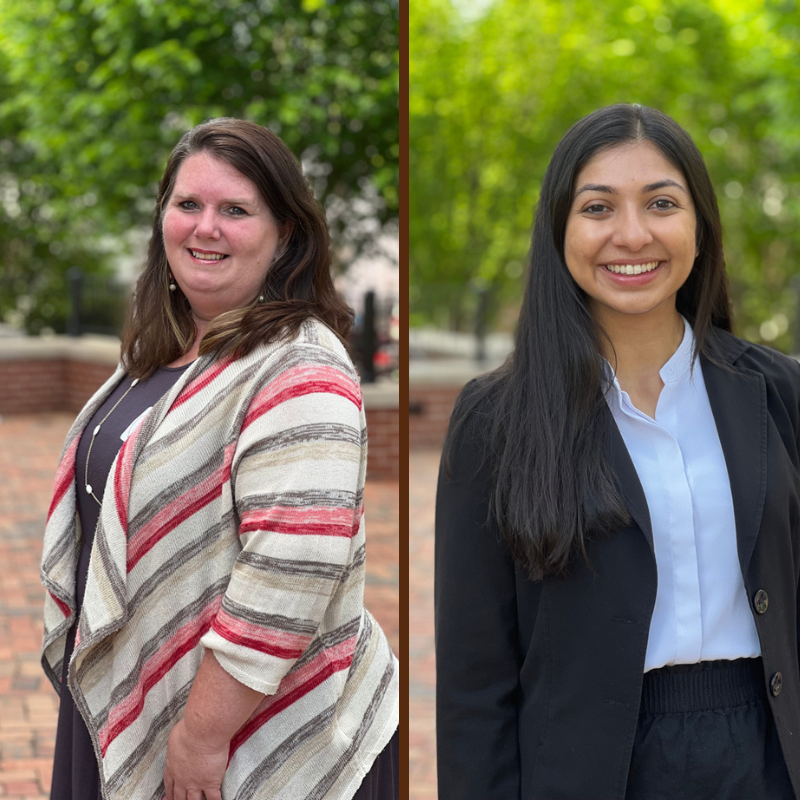By Javacia Harris Bowser
“If you have to bury your child, that’s the worst thing in the world a parent could ever do,” Alabama Schweitzer Fellow Kim Eaton says. And with those heartbreaking words, Kim captures the motivation for her fellowship project, which is to develop a manual for parents whose children are entering end of life cancer care.
For Kim, a second-year doctoral student in the University of Alabama at Birmingham’s School of Public Health, this project is personal. Six years ago, she lost her daughter to cancer.
“There’s nothing that’s going to take away that pain,” she says. “But what I’ve come to realize, just in talking to people and the experience myself, is that when we can talk about our kids, and we can share their stories, and we can use that experience to maybe help somebody else who’s about to go through it or who has just been through it, it helps heal us a bit as well.”
For the project, Kim has partnered with Angel’s Hope, a not-for-profit committed to enriching the lives of children fighting cancer by offering outreach programs within the pediatric cancer community.
By reaching out to families she already knew and recruiting more through support groups and social media, Kim organized focus groups to get the project started. She has also interviewed with physicians and other hospital staff such as nurses, chaplains, and social workers.
The information she’s gathered will be organized by themes, covering tough topics such as how to recognize end-of-life signs and how to plan a funeral, as well as the practical steps of what to do if a child dies at home or at the hospital.
“It’s stuff that nobody ever wants to read about but it’s the kind of information that families need to know,” Kim says. The booklet will include trigger warnings throughout.
“It’ll be very, very clearly labeled, so families won’t happen to stumble onto something they’re not ready to look at yet,” Kim explains.
The manual also will cover relationships and how to support a spouse and surviving children after the death of a child. The book will also include simple, but important things families wish they had done differently, such as taking more videos and pictures of their child.
While Kim plans for the manual to be available online and hopes even to create an app one day, her current focus is developing a printed booklet.
“The families who have participated, they’ve all said that they would have liked having something that they could hold in their hands,” Kim says.
For Kim, her fellowship project is just the beginning of the work she wants to do to help parents who have lost children to cancer.
She plans to develop a book to help families throughout the first few years after a child’s death and she wants to create a retreat for grieving parents.
Kim is also working on a book for the friends and family members of bereaved parents, a book that she hopes will keep well-meaning people from saying hurtful and insensitive things such as, “She’s in a better place” of “God needed her more.”
Even statements like “Let me know if there’s anything I can do” miss the mark.
“If I’ve just buried my child, the last thing on my mind is trying to think of something that you can do to help me,” Kim explains. “If you really want to help, don’t ask a family what you can do, just do something.”

Caring for the Care Givers
While Alabama Schweitzer Fellow Gnyata Patel was shadowing Dr. Ana Xavier at Children’s of Alabama, she saw firsthand the mental and emotional toll of pediatric cancer.
“I realized how hard it must be to be a caregiver,” says Gnyata, a second-year student at the UAB Hersink School of Medicine.
She also realized that in the state of Alabama there’s a striking lack of accessible and affordable mental health resources, especially for Spanish-speaking families.
For her ASF project, Gnyata wants to do something about this. She has partnered with the Hope and Cope Psychosocial Educational Program at Children’s of Alabama, where Dr. Avi Madan-Swain, director of the program, will serve as one of her mentors.
For the first stage of the project, Gnyata is interviewing caregivers to gauge their stress levels. After these mental health screenings, she will work to connect the participants with a variety of mental health resources. This includes teaching them self-help coping tactics and informing them of apps they can download to use as needed, as well and helping them to find and make in-person or virtual appointments with counselors.
Gnyata knows this won’t be easy. She’s found that counselors can be hard to come by.
“Whenever I’m like searching for resources, either the wait time is super long or they just don’t have any space for people,” she says. And finding counselors who can communicate with Spanish-speaking families proves even more difficult.
But Gnyata is up for the challenge. After connecting families with resources, she will conduct a follow-up mental health screening with participants in hopes of seeing improvements in their stress levels and overall mental wellbeing.
Gnyata plans to create a resource list that can be distributed to the families of children newly diagnosed with cancer. That way, Gnyata’s fellowship project will continue to have an impact for years to come.


